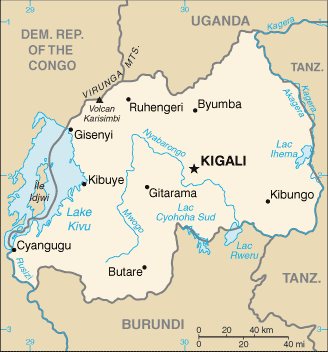Rwanda has a population of approximately 13.6 million people (2024). It borders the Democratic Republic of Congo, Tanzania, Uganda and Burundi. Through the support of the international community, the country has implemented important economic and structural reforms that have supported its economic growth rates over the past decade. This growth has been accompanied by substantial improvements in living standards, with a two-thirds drop in infant mortality and the imminent achievement of universal primary school attendance. Rwanda aspires to become a middle-income country by 2035 and a high-income country by 2050. This goal is to be achieved through a series of seven-year plans, the National Strategies for Transformation (NST1).
NST1 came after two five-year economic development and poverty reduction strategies – EDPRS (2008-2012) and EDPRS-2 (2013-18), under which Rwanda recorded strong economic and social performance. Growth averaged 7.2% in the decade to 2019. Gross domestic product (GDP) per capita grew by 10.9% in 2021. However, the COVID-19 pandemic has had a significant impact on Rwanda's economy, slowing growth. Despite this, the economy showed signs of recovery in 2022 and 2023, with GDP growth expected to be around 6.5% in 2024 [1].
The Italian contribution
At the moment, AICS finances two initiatives in Rwanda proposed and implemented by two Italian CSOs:
- Business development in the coffee and fruit and vegetable agri-food chains in Rwanda for long-lasting, inclusive and sustainable economic and employment growth and to overcome the consequences of the pandemic, carried out by the Institute for University Cooperation - ICU with the aim of supporting the government in the implementation of development policies for the agri-food supply chains, in particular those of coffee and horticulture.
- Amazi Meza (Clean Water) - Project to strengthen access to drinking water and hygiene for the rural population of Rwanda, carried out by the World Hunger Movement (MLFM) to guarantee sustainable access to drinking water and conditions adequate sanitation for the rural population of the Busetsa Cell.


